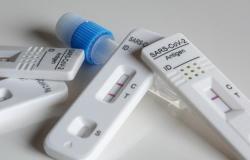Diagnosis and support for ADHD: the issues
The diagnosis of ADHD is based on the identification of symptoms of inattention, sometimes associated with hyperactivity and impulsivity, which persist over time and negatively affect the child’s school, social and family life. While early diagnosis can limit these impacts, it often remains complex to establish.
It is in this context that the HAS, contacted by the Interministerial Delegation for TND and the patient association HyperSupers-TDAH France, has developed recommendations to improve the diagnosis and support of young patients. These new guidelines complement those of 2015 which focused on the screening and monitoring of children with ADHD by the general practitioner.
Diagnosis requires an in-depth interview with the child and their parents to assess different aspects of their development (neurological, psychomotor, emotional, etc.). It also includes a clinical examination and the collection of information from the child’s school and family circle. Support focuses on non-drug interventions such as psychoeducation, which helps the child and their family better understand the disorder. Drug treatment may be considered in addition, depending on the severity of the symptoms.
Discussions between the healthcare professional, the child and their parents are crucial to choosing the most appropriate interventions together and ensuring good adherence to the therapeutic project. The HAS provides professionals with practical tools, including decision trees to guide the choice of interventions, as well as sheets detailing the diagnosis and drug monitoring.
Towards better access to care for ADHD
In France, the number of professionals capable of diagnosing and treating ADHD is insufficient, leading to long waiting times. Currently, only pediatricians, psychiatrists and neurologists are authorized to make a diagnosis and initiate drug treatment. To address this shortfall, the HAS recommends extending these skills to other doctors, particularly general practitioners. The latter would follow specialized and qualifying training, in conjunction with the relevant National Professional Colleges.
The role of telemedicine in care
Telemedicine could also play a key role in improving the management of ADHD. Although the initial diagnosis requires at least one face-to-face consultation for the clinical examination, teleconsultation could facilitate the remote monitoring of patients. The HAS also encourages the use of assisted teleconsultations, during which a health professional or psychologist accompanies the child and their family, thus providing support to the specialist doctor.
On November 5, the HAS will organize a webinar entitled “Best Practice Meeting”, intended for all professionals concerned, to explore these new recommendations in more depth.
These measures aim to strengthen the skills of health professionals and improve access to care for children and adolescents suffering from ADHD, by reducing territorial inequalities and optimizing the care pathway.
See the HAS recommendations





